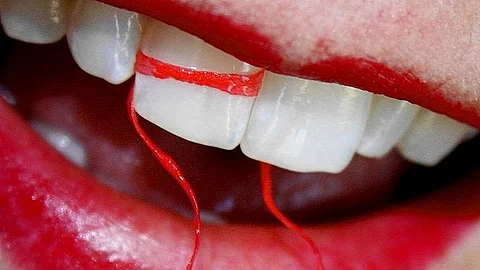Dr. Souvik also said that oral health behaviors are linked to inflammation and artery hardening. Flossing alone will not prevent strokes, but it can lower the risk of oral infections and heart diseases as well as promote overall health. Regular flossing prevents oral infection and gum disease, thereby reducing any inflammation in the body.
References:
1. Ng, Ethan, and Lum Peng Lim. "An overview of different interdental cleaning aids and their effectiveness." Dentistry journal 7, no. 2 (2019): 56. Accessed on February 04, 2025.
(Input from various sources)
(Rehash/Dr. Nethra Suryanarayanan/SSK)


